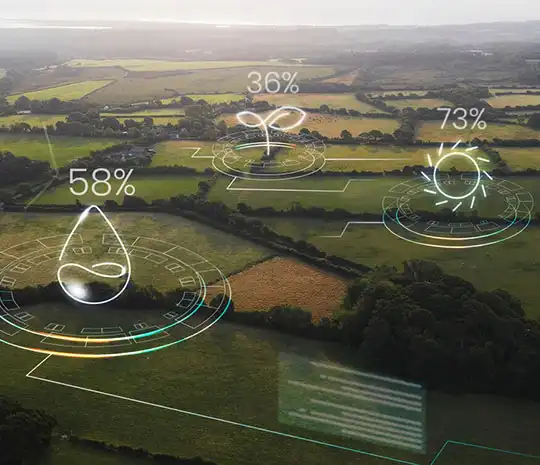Global Impact Alliance (GIA) offers a diverse range of training programs tailored to meet the needs of modern organizations and individuals aiming to drive positive change. These programs cover crucial topics such as sustainable development, corporate resilience, social impact, and inclusive work practices, designed to equip participants with the skills needed to address today’s challenges. By focusing on areas like ESG principles, mental health, hybrid work models, and social entrepreneurship, GIA empowers participants to create meaningful and lasting impact within their organizations and communities. Each program combines hands-on training, expert guidance, and real-world applications, ensuring participants gain practical knowledge that can be immediately implemented. Whether you’re a corporate leader, aspiring entrepreneur, or HR professional, our programs offer actionable insights to foster growth, resilience, and inclusivity. GIA’s training programs inspire transformative thinking and prepare participants to lead with purpose in an ever-evolving landscape.

The ESG and Sustainable Development training program aims to equip corporate leaders and teams with strategies to integrate environmental, social, and governance principles into their operations. Through in-depth sessions on sustainability practices, impact measurement, and ethical governance, the program encourages companies to adopt responsible business practices that contribute to long-term growth and social good. The objective is to enhance awareness, accountability, and transparency in corporate decision-making, aligning organizations with global sustainability standards.
Participants leave with a comprehensive understanding of ESG frameworks, strategies for implementing sustainable practices, and tools to measure and report on their impact. Graduates are empowered to foster a culture of ethical governance within their organizations, improve brand reputation, and attract ESG-conscious investors. The program positions participants to lead the way in creating positive social and environmental impacts while driving long-term value.

This program aims to raise awareness of ageism in the workplace and promote inclusive practices that respect and leverage the strengths of all age groups. Participants explore age-related biases, intergenerational collaboration, and policies to foster an age-diverse workforce. The objective is to create a workplace culture that values contributions from all ages, encouraging collaboration, respect, and equity.
By the end of the training, participants gain an understanding of age-related challenges, actionable strategies for inclusive practices, and the ability to foster a multigenerational workforce. They are equipped to build stronger, more dynamic teams that benefit from diverse perspectives. Organizations that adopt these principles can expect improved team cohesion, enhanced innovation, and a positive workplace culture that values every stage of life.

This program introduces participants to the principles of social entrepreneurship within the context of supply chain management. It covers topics such as ethical sourcing, community engagement, and responsible resource management, enabling participants to design supply chains that prioritize social impact. The objective is to encourage socially responsible practices that benefit both communities and business operations.
Participants emerge with a strong foundation in building sustainable supply chains, learning how to integrate social impact into sourcing and production. They gain practical skills to ensure transparency, fairness, and community involvement in their operations. By implementing these principles, participants contribute to more ethical and sustainable supply chains, enhancing both their company’s reputation and their impact on society.

This training program is designed to prepare organizations for potential crises by strengthening their resilience and risk management strategies. Participants learn about crisis forecasting, risk mitigation, and rapid-response frameworks, equipping them to protect their organizations from disruptions. The objective is to foster a proactive approach to crisis management, ensuring business continuity in the face of unforeseen challenges.
Graduates of the program are equipped with crisis management skills and practical frameworks for risk assessment and operational continuity. They gain confidence in managing disruptions and have the tools to develop organizational resilience. By adopting these practices, participants can safeguard their companies, maintain stakeholder trust, and sustain operations during challenging times.

This program aims to guide organizations on their journey to reduce their carbon footprint and achieve sustainability goals. Participants learn about carbon emissions reduction, renewable energy solutions, and carbon neutrality practices, aligning with global environmental standards. The objective is to help businesses transition toward sustainable operations and contribute meaningfully to climate action.
Participants leave with practical strategies to reduce emissions, improve energy efficiency, and integrate renewable energy. They gain tools for calculating carbon footprints, setting reduction targets, and reporting on sustainability performance. Equipped with these skills, participants can lead their organizations toward carbon neutrality, enhancing their environmental responsibility and reputation in a climate-conscious world.

This program is focused on developing effective corporate social responsibility (CSR) strategies that align with social impact goals. Participants explore how to design initiatives that address social needs, foster community engagement, and promote responsible business practices. The objective is to help organizations create meaningful CSR projects that benefit society while enhancing stakeholder relationships.
Participants gain insights into creating impactful CSR programs, learning how to measure social outcomes and communicate achievements to stakeholders. They develop skills in project planning, impact measurement, and stakeholder engagement. By implementing CSR strategies, participants position their organizations as responsible, community-oriented leaders, strengthening their reputation and social footprint.

This program is designed to help organizations adapt to the changing workforce dynamics of hybrid work environments. Participants explore talent acquisition, retention strategies, and productivity management in remote and hybrid settings. The objective is to equip leaders with tools to manage hybrid teams effectively, foster employee engagement, and support flexible work models that enhance productivity.
Participants gain skills in talent management tailored to hybrid environments, including techniques for boosting team cohesion, productivity, and employee well-being. They leave with strategies for recruiting and retaining top talent, fostering a positive culture, and addressing the challenges of remote work. By adopting these practices, organizations can create a resilient, adaptable workforce and a supportive, innovative workplace culture.

This program aims to improve employee well-being by focusing on mental health support and corporate wellness initiatives. Participants learn about creating supportive environments, reducing burnout, and promoting mental health awareness within their organizations. The objective is to empower organizations to prioritize employee well-being, resulting in a more engaged and productive workforce.
Participants emerge with actionable strategies for supporting employee mental health, including resources for stress management, wellness programs, and empathetic leadership practices. They gain insights into fostering a healthy workplace culture where employees feel valued and supported. Organizations that implement these practices can expect higher employee satisfaction, reduced absenteeism, and a positive, inclusive work environment focused on well-being.
Through these training programs, GIA is committed to fostering a new generation of leaders equipped to handle the complexities of today’s social, environmental, and economic landscape. Each participant leaves empowered with the tools to implement impactful change, build stronger teams, and promote sustainable practices within their sphere of influence. By investing in these programs, organizations can expect improved resilience, innovation, and a more inclusive work culture. Our training programs don’t just impart skills; they build communities of like-minded individuals dedicated to creating positive social impact. GIA remains dedicated to supporting participants as they transform ideas into action, paving the way for a better future.

Join GIA’s membership to access exclusive training, resources, and a global network of changemakers dedicated to sustainable, inclusive impact.